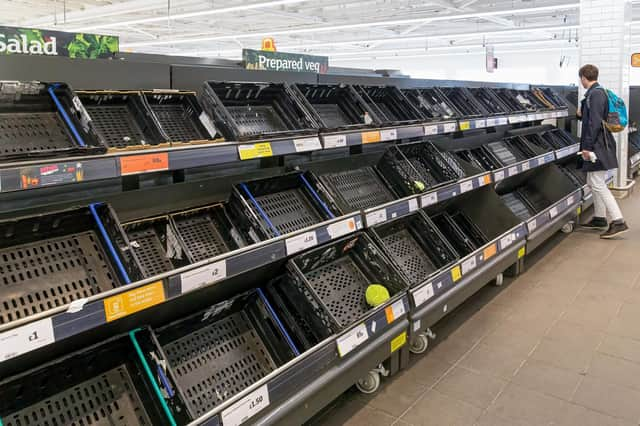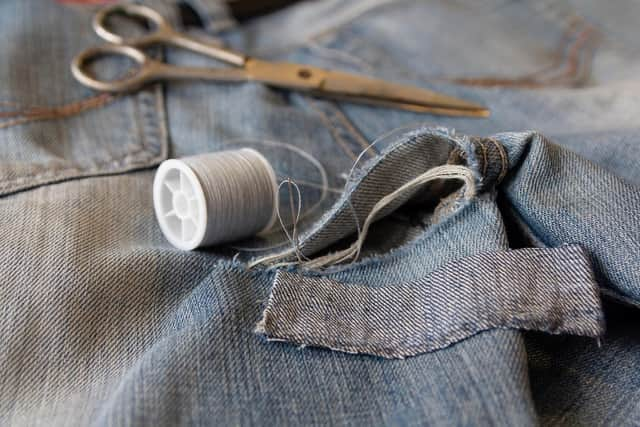Fresh fruit and veg shortages – when will scarcity end?


We hear it may be because of trade agreements, but the reality is you can’t get your cucumbers or tomatoes because of climate change and that’s where the issue pretty much starts and stops.
We’ve had shortages in the past due to extreme weather but big companies and supermarkets have found ways around them, either by finding different suppliers or marketing the shortages differently. When cereals started being fortified with different grains including oats and barley it was – in part – because wheat prices went so high as demand outweighed supply following droughts and floods in Australia and other wheat exporting countries. But rather than discuss climate change, cereal producers looked elsewhere for ingredients.
Advertisement
Hide AdAdvertisement
Hide AdYes a lot of our produce, grown out of season, including your humble tomato and cucumber come from Europe or North Africa that have warmer climates. But this winter they have been hit by bad weather which has destroyed the crops. We usually grow both of those products in the UK as well. Unfortunately though, the producers in places like the Isle of Wight where these products grow in massive greenhouses have been hit with spiralling energy costs and they can’t afford to keep their greenhouses warm and lit this winter. It has left our supply chain vulnerable.


It used to be that if France had a bad harvest because of the weather, Spain might have a good one or vice versa, but the empty supermarket shelves are the result of climate change so there’s no quick fix. Frosts, heatwaves, floods, drought – they’re all affecting farmers on a global scale. It’s all to do with the fact that the planet is getting warmer and our weather is going haywire as we burn more oil and gas. From Australia to Pakistan to Spain to North Africa – the usual places we buy food from are suffering from unseasonal weather and that’s affecting what they can grow and sell and ultimately, what we can buy.
There are things we can do to limit how much our shopping list is affected. Firstly buying seasonally will mean we’re limiting our food miles, which supports UK farmers. Also reducing fossil fuels burnt to heat greenhouses in winter – which ultimately helps the planet. Visit www.findlocalproduce.co.uk to find your nearest producers. It also means we’re less likely to feel the effect of weather events thousands of miles away. Opting for dried or tinned rather than fresh when it comes to some fruits or vegetables can help mitigate gaps in your weekly shop. While we all know kids want the same things and can be fussy, buying different items every week means you’re hedging your bets and could have a ‘go to’ other the next time you can’t get peppers for your Friday night fajitas. The bottom line is that climate change and food shortages aren’t going anywhere so we have to adapt.
Celebrity spot
Oscar, Grammy and Golden Globe winning singer Billie Eilish doesn’t eat meat.
Advertisement
Hide AdAdvertisement
Hide Ad

The 21 year-old singer said: "I don't eat it because I have my own reasons for not eating it, and I have my own beliefs, and I have my own feelings of wanting to save animals and save the planet and whatever.”